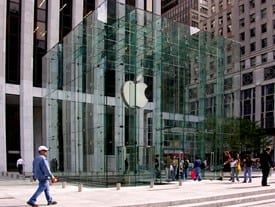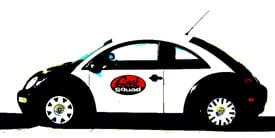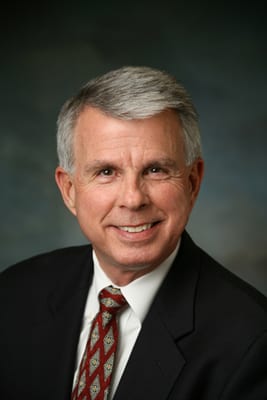 Experience Economists
Experience Economists
A Q&A with authors Joe Pine and Jim Gilmore
By Chip Conley
Part of the reason I was excited to have authors Joe Pine and Jim Gilmore involved in this issue was because they opened my eyes a decade ago to what we were doing in my company, magically. Anyone who wanted to understand the nature of the evolution of what we’re looking for as customers, and what as businesses we’re trying to provide, was summed up well in their book The Experience Economy. Then the guys gave me an award as the Experience Stager of the Year. It was then I came to realize that I needed to take this experience staging a little bit more seriously. So, we ended up creating something called the Experience Report Card, which we’ve had in place for almost a decade now, as a means of trying to focus on some of the intangibles of what makes for a great hotel experience. In this conversation, I’m hoping we’re going to be able to have Jim and Joe tell us about how the hotel industry can continue to remake itself, to become the ultimate experience industry.
Chip Conley: Tell us a little bit about the theory that backed up The Experience Economy. What has happened in the world since then, and how does it relate to hospitality?
Joe Pine: We’re actually in the midst of thinking about that ourselves, because we’re now writing a second edition of The Experience Economy to come out in paperback next summer. So, it will be 12 years after the original. And in the original book, we made the case that we are shifting into an economy where experiences have become the predominant economic offering, where goods and services are everywhere being commoditized, and what consumers want are those experiences, the memorable events that engage them in an inherently personal way. And what Jim and I have seen in the past dozen years is that it’s no longer just an emerging experience economy. It has emerged. It is in full flower, as we see across industry after industry that companies are ascending to the proposition that they are in the experience business.
 JP: And one of the surprising things we’ve seen is how many manufacturers are sort of skipping over services and getting into the experience business.
JP: And one of the surprising things we’ve seen is how many manufacturers are sort of skipping over services and getting into the experience business.
CC: Like who?
JP: Well, like Volkswagen, with its Autostadt theme park that gets over a million visitors a year in Germany. Like Apple with all of its stores.
Jim Gilmore: Think of how Apple stores immerse people in the brand. Joe and I do learning excursions with clients, and I remember taking one group into the Apple store on Michigan Avenue in Chicago, and one executive saying, ‘Um, this is like walking inside of a Mac.’ And to me, what better way to immerse people in your brand?
JP: So it’s no surprise that Virgin just announced they’re getting into the hotel business.
CC: Yes. And funny enough, Ron Johnson is the guy at Apple who in essence was the mastermind for all their retail stores. He went to college with me, a couple years ahead. And they actually went out and studied hotels in their process of creating those Apple stores, because they thought of the Genius Bar as sort of being the bar at a hotel. So hotels, actually, can inform all kinds of industries.
JG: Well, when we walk people through chapter three, our theming methodology, there’s no industry that we rely upon more to illustrate the principles of harmonizing cues and creating impressions and taking into consideration the sensory phenomena of the experience. Clearly, people can learn much from hospitality venues.
CC: Take us through that, because one of the things you’ve said is that a hotel should think of itself as having a turnstile. If you thought of your hotel as if it had a cost to get in, what would you do in terms of staging an experience?
JP: Well, the key thing is what Jim just talked about, and that is theming; that you come up with the organizing principle for what the hotel is about, and then, organize all of the impressions and the positive cues to be able to fulfill that theme. And that’s why we gave you the Experience Stager of the Year Award, Chip, was because we consider you the best themer in the world.
CC: Oh, thanks. Please explain good theming versus bad theming.
JG: You use magazines as an organizing principle and that’s what gives your spaces integrity. It’s hard to watch any design show on HGTV today that doesn’t have that same sort of methodology for design inspiration. Right? Well, that’s theming, whether you call it that or not. And not just the place overall, but the principle of theming places inside of places. Let’s give kudos to [Ian] Schrager here. The re-invention of hotel lobbies, that were once places where people simply met to leave, which is what they were, to instead be places to congregate, stay and have an experience.
CC: Can you talk about any trends in the hospitality industry that have become more experience-driven in the 21st century? And what would you love to see the industry do that we currently don’t offer?
JG: I often use, as an iconic example of the experience economy, the Gumball Wizard. It’s a gumball dispensing machine where you put your coin in, and the gumball spirals around and around and around. There’s no traditional functional reason for that. It’s not a better gumball. It’s worse service, as it takes you longer to get your order. It’s about the gumball spiraling experience that’s wrapped around the traditional offering.
To me, the gumball machine of the hospitality industry is the housekeeping cart. Even if you want to just do it just for practice, to practice all the principles and tools that we put forth in The Experience Economy, get a team together, and see if you can learn how to make the cart so engaging that people want to buy a miniature of it in the gift shop. And I don’t really care so much about the housekeeping cart. What I really care about is learning the skills needed in order to take something that’s mundane and turn it into something memorable.
 Just like, the year before you received our award, we gave it to Robert Stevens of the Geek Squad, when he had less than two dozen special agents in his computer repair business. It doesn’t get much more mundane than that. But by applying all the principles of experience staging, the Geek Squad now has over 20,000 special agents in their black and white Geekmobiles, flashing badges, and creating memorable experiences. If you can learn to do it with a housekeeping cart, you can learn to do it with your entire hotel.
Just like, the year before you received our award, we gave it to Robert Stevens of the Geek Squad, when he had less than two dozen special agents in his computer repair business. It doesn’t get much more mundane than that. But by applying all the principles of experience staging, the Geek Squad now has over 20,000 special agents in their black and white Geekmobiles, flashing badges, and creating memorable experiences. If you can learn to do it with a housekeeping cart, you can learn to do it with your entire hotel.
CC: Your most recent book is called Authenticity. Explain why there’s such a trend toward authenticity, and how is that woven into the design of a hotel, restaurant, or spa?
JG: The more the world is intentionally staged, is more and more mediated, where people are paying to go to American Girl Place, or the guy who fixes your computer looks like law enforcement, this creates the desire for authentic and real. And so we hang this point of view on our foundational model, the progressional economic value: when you go from commodities to goods to services to experiences, we argue in Authenticity, that that gives rise to a new dominant consumer sensibility-a new reason to buy. And so in the agrarian economy, the dominant reason to buy was availability. If it was available, you’re going to buy it.
It was with the industrial economy, that’s when cost emerged. That mass production brought down the cost of goods, that nearly everybody could afford to buy one of every physical thing they wanted. With the rise of the service economy, that’s when quality emerged. You pay somebody else to cut your hair, mow your lawn, change your oil. You care about the performance of the quality of the offering.
And now with an experience economy, people want real; they want authentic, which we define as buying on the basis of conforming to self-image. Virginia Postrel explains this well in her book, The Substance of Style, which if your readers have not read, they should. She says if consumers today purchase something, they say, ‘I like that, I am like that.’
CC: Any last thoughts on your ultimate dream hotel?
JP: An ultimate dream hotel would recognize not only who I am as an individual, it would recognize what market I happen to be in at the moment. Because when I travel alone on business, I want one thing from my hotel; when I travel with my wife, I want a second thing; when I bring the kids along, a third thing; when it’s not business, it’s personal, a fourth thing. There are multiple markets within me, so stop treating me like a mass market and identify who I am and what I need.
CC: So the ultimate hotel is a mind reader.


